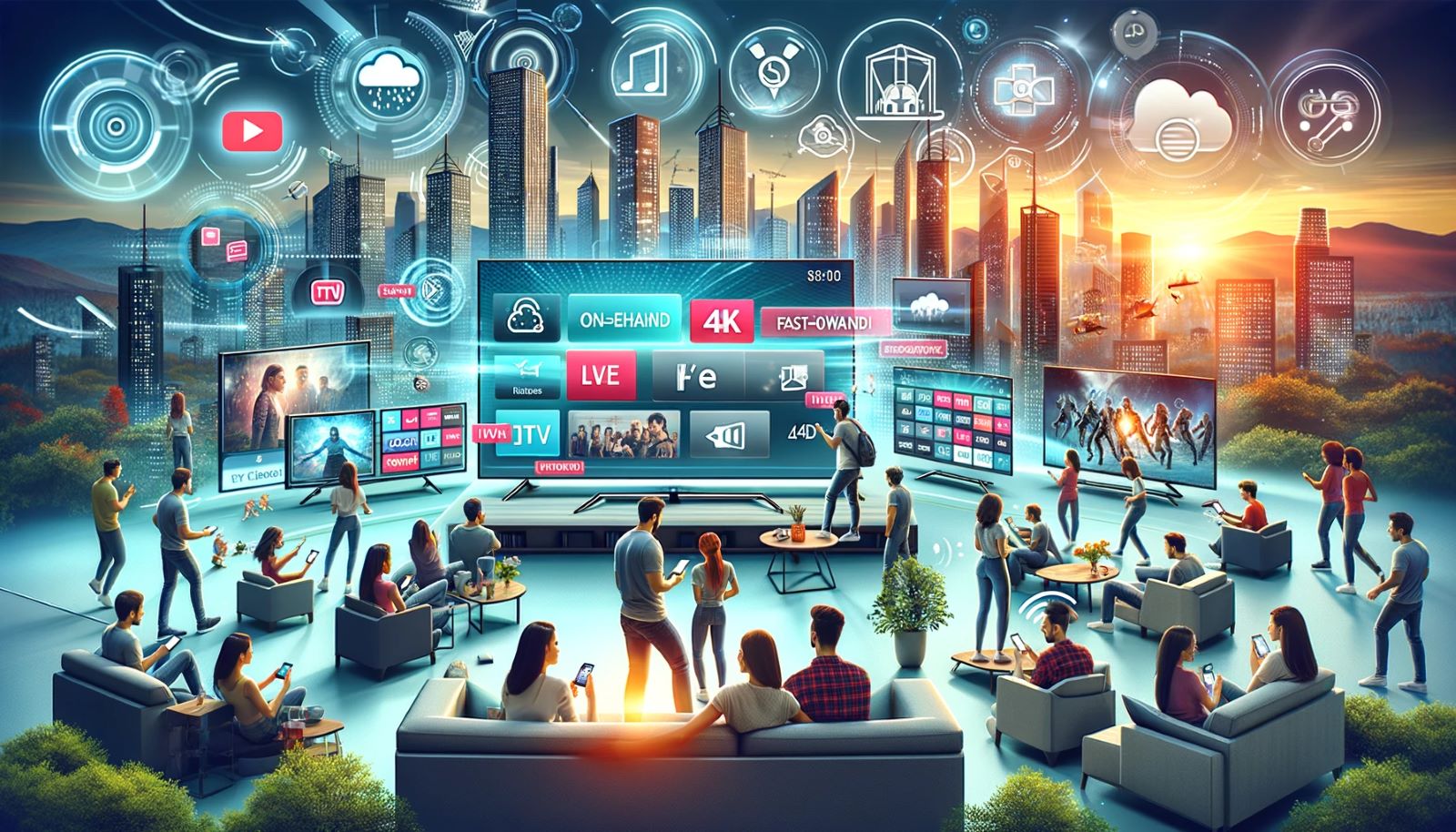As the world of television evolves, IPTV (Internet Protocol Television) is increasingly seen as the future of entertainment, contrasting sharply with traditional cable TV. This blog post delves into the advantages of IPTV over cable TV and discusses why IPTV is the smarter choice for today’s digital-savvy viewers.
Flexibility and Convenience
One of the most significant advantages of IPTV over traditional cable TV is its flexibility:
- On-Demand Content: Unlike cable TV, IPTV allows users to watch shows and movies on demand. There’s no need to follow a strict broadcast schedule.
- Multiple Devices: IPTV can be streamed on a variety of devices, from smart TVs and tablets to smartphones and laptops, ensuring you can enjoy your favorite content on the go or from the comfort of your home.
Enhanced User Experience
IPTV provides an enhanced viewing experience with features that are often lacking in traditional cable services:
- Interactive Features: IPTV offers interactive services like pause, rewind, and forward for live TV, not to mention the ability to record shows for later viewing.
- Personalized Content: Advanced algorithms help suggest shows and movies based on your viewing habits, enhancing your experience and making content discovery easier.
Cost-Effectiveness
In most cases, IPTV offers more content at a lower cost compared to traditional cable TV:
- Tailored Packages: Instead of the all-or-nothing approach of cable TV, IPTV often allows viewers to tailor their subscriptions with specific packages or channels, reducing unnecessary costs.
- No Special Installations: IPTV uses your existing internet connection, eliminating the need for costly cable installation and equipment rental fees.
Quality and Variety of Content
IPTV not only offers better quality with options for HD and 4K streaming but also provides a wider variety of content:
- Global Content Access: IPTV breaks geographical barriers, offering access to international content more easily than cable TV.
- Niche Programming: Cater to your specific interests with channels and programs that might not be available on mainstream cable networks.
The Future of Television
Looking ahead, IPTV is better positioned to incorporate emerging technologies such as 5G, VR (virtual reality), and AI (artificial intelligence) to enhance viewer interactivity and content personalization.
Conclusion
With its flexibility, user-centric features, cost-effectiveness, and superior content variety and quality, IPTV clearly stands out as the future of television. As technology continues to advance, IPTV’s integration with newer technologies will only deepen, further cementing its advantage over traditional cable TV and redefining our viewing experience. For anyone considering making the switch or upgrading their current service, IPTV offers a compelling, future-ready solution.



